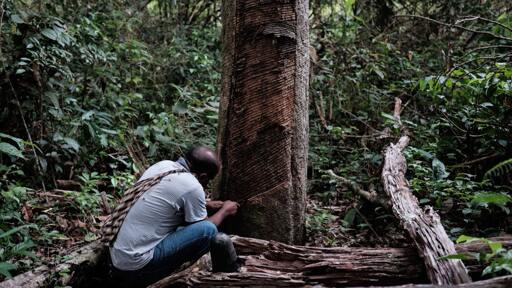Some of the world’s biggest food and consumer goods companies have accused the European Commission of jeopardising its own green agenda by proposing to delay a landmark anti-deforestation law for a second time. […]
The law, known as the EUDR — which requires companies importing commodities such as cocoa, coffee, rubber, palm oil, soy, dairy and timber to prove they do not originate from deforested land — was due to take effect at the start of 2026, having already been postponed by a year.
[…]
But last month, the commission said that it would propose a second delay until the end of 2026, citing problems with its IT system designed to process data from importers.
[…]
EU officials have said the commission will formally propose the delay in the coming weeks. It will have to be agreed by the European parliament and member states.
[…]
Companies ranging from commodity traders to food manufacturers say they have spent millions preparing for the law and are frustrated by what they see as a lack of discipline in Brussels. Many are urging the commission to press ahead without the delay.
[…]
Ferrero, the Italian confectionery group behind Nutella and Kinder, said a delay risked undermining years of preparation and “sending the wrong message” to companies and farmers that had worked to meet the EU’s standards.
[…]
Olam Agri [a commodities trading company], which operates in the rubber and timber sectors, urged Brussels not to postpone implementation, arguing that by doing so, it “risks penalising companies that have invested early in compliance and could erode trust in the EU’s leadership on sustainability”.
[…]
Campaigners fear that if negotiations are reopened it could pave the way to a significant watering down of the law. Rightwing MEPs are lobbying, for example, for a “no risk” category that would exempt EU member states.
Under the law in its current form, countries are benchmarked according to the risk of deforestation within their borders. So far only Russia, North Korea, Belarus and Myanmar are categorised “high risk”.
[…]
In addition, [the companies] want a technical working group of EU officials, national authorities, and businesses to co-ordinate and ensure the smooth rollout of the law.



Yes, but if only some do, those who don’t destroy the environment and might have lower costs to exploit their supply chains. For example, the law categorizes Myanmar as ‘high risk’, and China has been expanding its control of rare earth in Myanmar tremendously in recent years, causing a severe environmental crisis in the country (you’ll easily find sources for this).
Transparent supply chains make no sense if they are transparent just for you and me but not for everyone imo.